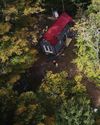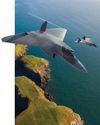It’s Time To Start Planning Your Trip Beyond The Atmosphere.

Space has it all.
Circular mountain ranges! Metallic asteroids! Geysers of sulfur! Oceans on a steady boil! It may just be the ultimate vacation destination. But how do you pack for the moon? What are you looking at for lodging? Will you get carsick in a rocket? In the era of space tourism,these are things you need to know.
So here’s the first thing: They call it “The Overview Effect.” It’s what happens when you see the Earth from space, all you’ve ever known just a glittering orb in the cosmic emptiness.Your sense of humanity grows. Your perception shifts. You are forever changed.
Sounds kind of scary. But then, isn’t it exactly why we travel?
PLAN YOUR TRIP
There are no short trips to space—only long, longer, or forever. And odds are, you’ll only go once. These trips will make the most of whatever amount of time you have.
By Bobak Ferdowsi
THE GETAWAY
ROUND TRIP:
Two weeks
The moon is only three days away. It’s the sole destination in space where you can retrace the steps of human explorers, and you’ll encounter a variety of craters, ridges, and plateaus for your own expeditions. The lunar poles harbor water. Mare Orientale is the moon’s youngest impact basin, ringed by circular mountain ranges nearly 600 miles in diameter. The near side of the moon offers breathtaking views of Earth, while the far side is the ultimate digital detox—there’s very limited means for communication with Earth.
THE SABBATICAL
ROUND TRIP:
Three years
Denne historien er fra April 2019-utgaven av Popular Mechanics.
Start din 7-dagers gratis prøveperiode på Magzter GOLD for å få tilgang til tusenvis av utvalgte premiumhistorier og 9000+ magasiner og aviser.
Allerede abonnent ? Logg på
Denne historien er fra April 2019-utgaven av Popular Mechanics.
Start din 7-dagers gratis prøveperiode på Magzter GOLD for å få tilgang til tusenvis av utvalgte premiumhistorier og 9000+ magasiner og aviser.
Allerede abonnent? Logg på

ONE OF THE 'GREATEST THREATS' TO THE PACIFIC NORTHWEST ISN'T WHAT YOU THINK.
EXPERTS ARE PREPARING THE REGION AGAINST THE THREAT OF DANGEROUS VOLCANIC MUDFLOWS, KNOWN AS LAHARS, WHICH COULD INUNDATE THE COMMUNITIES SURROUNDING MT. RAINIER IN AS LITTLE AS 30 MINUTES.

THE WORLD'S TOUGHEST ROW
They rowed 3,000 miles across the Atlantic, battling unpredictable weather, chaotic seas, and finicky equipment. But what they discovered gave them profound new insights into the power of the ocean.

HOW TO DIY OFF-GRID SOLAR
SPEND THE TIME UP FRONT AND PLAN IT CAREFULLY TO AVOID DISAPPOINTMENT

Are We on the Verge of an ARMS RACE in SPACE?
RUMORS OF A RUSSIAN SPACE NUKE, ALONG WITH OTHER SATELLITE-TARGETING WEAPONS, HAVE MADE GEOPOLITICAL TENSIONS EXTEND INTO ORBIT.

Fresh Fingerprints on an Ancient Statue
A CLAY FIGURINE HAS SPENT MILLENNIA incomplete, waiting at the bottom of a lake for its long-dead craftsman to finish the Iron Age-era statuette.

Quantum Entanglement in Our Brains
IT HAS LONG BEEN ARGUED THAT THE human brain is similar to a computer. But in reality, that's selling the brain pretty short.

The Tools of Copernicus
WAY BACK IN 1508, WITH ONLY LIMited tools at his disposal, Nicolaus Copernicus developed a celestial model of a heliocentric planetary system, which he described in hist landmark work De revolutionibus orbium coelestium. It was a complete overhaul of our conception of the universe-one that, unfortunately, earned him the ire of the Catholic church for decades after his death-and forever changed the way we look at the stars.

Building a Sixth-Generation Bomber Raptor
THE GLOBAL COMBAT AIR Programme (GCAP)-a project by the U.K., Italy, and Japan to develop a sixth-generation stealth fighter-has been busy at the drawing board reshaping its vision of the future of air warfare. And judging by the new concept model unveiled at this year's Farnborough air show, that future has big triangular wings.

The Electroweak Force of the Early Universe
TODAY, THE UNIVERSE AS WE KNOW IT IS governed by four fundamental forces: the strong nuclear force, the weak nuclear force, electromagnetism, and gravity.

This Ancient Fossil With a Brain and Guts
WE KNOW WHAT FOSSILS LOOK like. For example, typical dinosaur fossils are bones turned to stone and preserved from the passage of time, located, if we're particularly lucky, in large collections that can be reassembled to represent the beast they used to prop up in their entirety.